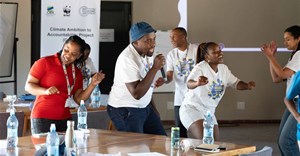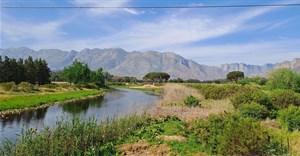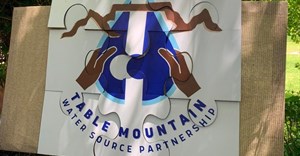
Subscribe & Follow
WWF launches project to manage small-scale fisheries

Since 2013, WWF-SA has been working with the Kogelberg fishing communities and various stakeholders in Kleinmond (about 100km east of Cape Town) to address some of the key environmental and social challenges facing South Africa's small-scale fisheries.
The first of its kind in the country, this Fisheries Improvement Project (FIP) is built on the premise that small-scale fisheries need to be both socially and environmentally sustainable in order to sustain livelihoods. Over the last year, together with the community, the project partners have pulled together a workplan to achieve resilient fisheries.
Key to the workplan is enabling environmentally responsible small-scale fishers to participate more actively in the supply chain. It is hoped that by incentivising responsible fishing communities to play more of a role in the marketing and processing of their catches, they will benefit from better returns for their efforts than those unwilling to participate.
Realities are harsh
This will require the support of the formal retail and restaurant markets, many of whom have expressed a willingness to enable responsible fishers through preferential procurement. "The realities faced by small-scale fishers are harsh and immediate," says Mkhululi Silandela, WWF-SA's small-scale fisheries officer.
"Fisher folk struggle daily. They are often burdened with debt and a highly variable environment in which the effects of climate change as well as the availability of fish directly impact on their livelihoods. In addition to the many institutional constraints that often impede progress in small-scale fishing communities, they have also been disadvantaged by the pricing system in the fisheries sector and this requires application of developmental models such as fair trade.
"A pragmatic approach to addressing the environmental sustainability issues of the fishing activities in the area will not succeed unless it considers the additional challenges of poverty, unemployment and inequality which are rampant in the coastal communities.
"We believe this innovative FIP approach provides a viable model for marine conservation because it integrates social accountability and environmental management. What is more exciting about the model is the opportunity to create improved market access for communities who have committed to improving their fisheries."
Long-term objective
The long-term objective is to see the project emulated in other fishing communities along the South African coast. The problem is that collapsed marine ecosystems are not easy to replace and WWF believes that significant effort is needed from all stakeholders to ensure that our oceans are managed responsibly, not just for today's fishing communities but those of tomorrow as well.
With the help of partners like Vodacom and the University of Cape Town, WWF-SA is also testing new ways to engage with fishers around conservation issues, among them using cell phone technology primarily to enable fishers to declare their catches in real time and thereby assist the monitoring efforts.
Through this project, WWF will partner with local small-scale fishers to encourage them to become 'citizen scientists' who will gather reliable scientific data by using phone apps for monitoring. This information can be used to refine fisheries management practices in the region.













